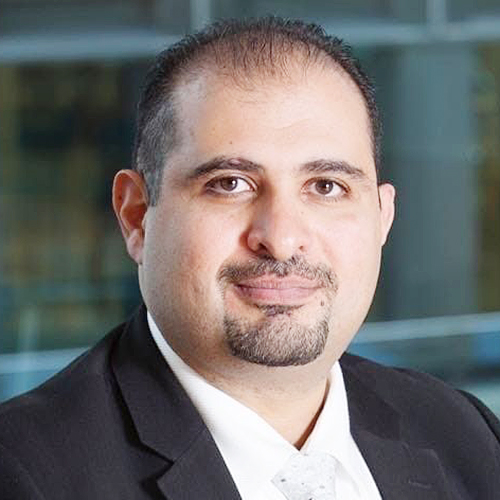When the 12 boys and their football coach trapped inside the flooded Tham Luang cave in Thailand’s northernmost province of Chiang Rai were all rescued on the 10th of July, the country erupted with an outpouring of joy. As a relieved nation celebrated, the fragility of the nine-day operation was thrown into sharp relief, for even as the last of the rescuers were exiting the cave the main water pump draining a portion of the cave broke down causing the water level to start rising again.
Curiously, a parallel story has been playing out as the country starts to emerge from years of sub-par growth. Although indicators are flashing green with the economy set to post its fastest rate of expansion in five years – a source of pride for the military junta that continues to rule Thailand – peel under the headline numbers and they reveal a recovery that is, at best, concentrated to a limited segment of the economy.
The governor of the Bank of Thailand (BoT), Veerathai Santiprabhob, acknowledges this weakness and also concedes that growth has been uneven. In a recent speech to investors in Singapore, he said that the Thai economy weathered several storms over the past few years. However, he added that the recent economic upturn was of a different character from the other episodes.
Despite achieving a GDP growth of 3.9% in 2017, “indicators such as the unemployment rate and non-performing loans (NPL) ratios were rising slightly between 2015 and 2017”, he shares. “This is contrary to what you would expect to see when the macroeconomy performs better.” While both indicators have stabilized recently, the central banker believes their developments “reveal that some segments of the economy did not benefit much from the economic recovery”.
Veerathai cites a number of reasons, including external demand, which is Thailand’s main growth driver, to explain this disparity. “The robust recovery momentum on the global scale has resulted in a strong expansion of Thai exports across product categories and export destinations,” he points out. “In addition, the Thai tourism sector has grown consistently with steady increases in the number and quality of tourists.”
However, domestic demand growth, he says, is still proceeding at a gradual pace. “Despite a continuous recovery, private consumption growth remains well below that of GDP, registering within the 3% range.” Private investment growth, he observes, had concentrated mainly in the export sector.
Income disparity
The country’s rural economy has also been exposed to more adverse shocks than its urban counterpart. The withdrawal of several populist measures such as the controversial rice pledging scheme coupled with adverse weather such as severe droughts in 2016 and floods in 2017 were negative income shocks to farmers. It was also a period when the global prices of key export crops especially rice and rubber declined.
Veerathai points to the difference in business performance between medium-sized and large firms in the stockmarket, which has been widening. “Rural entrepreneurs, which are mostly small and medium enterprises (SMEs), tend to be less productive and might not be able to compete with larger firms that are better equipped with capital and technologies.” He says these developments partly explain why the NPL situation has yet to improve for SMEs across the board even as the loan quality among the large corporates in the same sectors has improved.
A third factor behind the uneven economic recovery, he believes, is the impaired function of the spending multiplier. “Usually, when recovery starts to emerge in certain segments of the economy, the multiplier effect of spending should create positive spillovers to the other parts of the economy, thereby securing a more broad-based recovery over time,” Veerathai suggests.
“However, export-oriented firms, which currently spearhead the ongoing economic recovery, are capital intensive. They utilize more machinery rather than relying on labour. Positive spillovers to employment are less prevailing.” This is also why manufacturing employment growth has been more subdued, despite export growth and a pickup in the manufacturing production index.
The high level of household debt especially during the debt deleveraging period also dampens the multiplier mechanism, he says. “While there are signs of household debt being deleveraged as reflected by the continuous decline in the ratio of household debt to GDP, which fell from 79% in 2016 to 77.5% by the end of last year, debt burden remains high, especially for lower-income households.”
This last point is a particular source of concern. “The gap between the Bangkok wealthy and the rest of the country has to be narrowed down,” believes Tibor Pandi, head of Citi Thailand. “Decreasing the overall indebtedness of the population would increase their confidence to stay, invest, spend and hopefully also make them richer. That would be the key determinant of Thailand’s long-term success.”
Infrastructure and new platforms
Veerathai thinks the situation is starting to turn around. “Export growth rate of SMEs has become more or less on par with that of the larger firms,” he points out. “Domestic demand is also gaining traction with a steady growth in private consumption and a pickup in private investment since the third quarter of last year especially from imports of capital goods.’
The need to correct this imbalance is also not lost on the country’s military administration, the junta that has ruled Thailand since 2014, the National Council for Peace and Order (NCPO). “The government has directly stepped up various stimulus measures to support the rural economy,” the BoT governor notes. In 2017, for example, it introduced a supplementary budget with a particular focus on local infrastructure development. It also launched the Welfare Card Scheme, which is intended to support the daily expenditures among poorer households.
In 2018, the new supplementary budget is allocated to vocational training as part of the second phase of the Welfare Card Scheme, development of local community enterprises and water resource development to help improve productivity within the agricultural sector. Together with the increase in the minimum wage in April 2018, these initiatives should help support the rural economy, according to Veerathai.
He also expects the multiplier effect to improve as government infrastructure projects, some of which were deferred from last year due to the new procurement system, get underway. “Many projects have gone through the bidding and procurement processes with material progress underway. These projects include, among others, four of the five dual-track railway projects that would greatly improve the logistics network between major cities and industrial estates in central and northeastern Thailand. We can expect to see these dual-track railways up and running from 2019 and 2020 onwards.”
Other key infrastructure under construction include the upgrade of the mass transit system with three new metro lines in Bangkok that will extend from existing stations to residential areas in outer Bangkok. The green and orange lines are scheduled to be completed by 2021 and 2023, respectively.
Beyond Bangkok
NCPO’s intention is not just to unclog the transportation bottlenecks in the country’s capital. To address the income disparity, it is also pushing for development into the countryside. At the centre of this strategy is Thailand 4.0 and the Eastern Economic Corridor (EEC), a US$45 billion new investment platform. In February 2018, the National Legislative Assembly approved the EEC Act, which came into effect in May.
As a special economic zone, EEC covers Chon Buri, Rayong and Chachoengsao provinces and is intended to attract foreign direct investment with extensive incentives into new high-growth industries such as smart electronics, electric vehicles, robotics, aviation and logistics and the wellness industry in which Thailand has a competitive edge.
Since last year, Veerathai notes that the value of net investment applications under Thailand’s Board of Investment has grown by 23% with almost half of the investment in the EEC. “The high-speed train project to connect U-Tapao Airport with major cities within the EEC and two main airports in Bangkok has been announced with the terms of reference (TOR) of this project now available for potential bidders.”
The EEC provides a variety of incentives, which are in addition to existing ones, on tax (exemptions up to a maximum of 13 years) and land ownership for applications submitted by the end of 2019. In addition, a Smart Visa Programme was launched in February 2018 to attract experts, senior managers and investors to work or invest in technology companies.
In addition to the EEC Act, other process improvements have also been introduced in the past couple of years to improve the ease of doing business and ensure that laws can be adjusted to accommodate new business practices. These initiatives are already starting to have an impact. In the World Bank’s Doing Business Ranking, Thailand improved its position from 46th in 2017 to 26th in 2018. It was among the most improved countries in the world, according to the World Bank.
Embracing digital
The central bank is doing its part, Veerathai says, with a sustained effort to transition the country to a new era of digital payment system and financial technology. He believes electronic payment infrastructures must be put in place to realize the full potential of the digital economy. Last year’s launch of PromptPay, an instant payment platform, has significantly boosted mobile banking. “In just over a year, there are over 40 million IDs registered on the platform and more than 2.7 million transactions a day,” he shares.
Similarly, the Stock Exchange of Thailand (SET) is also supporting the transition to a digital economy. In May 2018 it launched LiVE, the country’s first crowdfunding platform for startups and SMEs, which has been developed using blockchain technology. “It is a platform for startups to meet prospective investors,” explains Pakorn Peetathawatchai, president of the SET. “The platform is also to test the blockchain technology we have developed.”
The next phase, he adds, is to start working with other government agencies to develop a centralized platform “so startups can come in and look at all the grants available from the government or the private sector”. Pakorn envisions registered startups will have access to government ministries such as commerce, the intellectual patent office and so on. “We are doing this because once the startups are able to grow, they will be able to get on to the LiVE platform, transition to MAI (Market for Alternative Investment for SMEs) or SET. This is another way to promote the supply of new companies.”
The flurry of business-enhancing initiatives in 2018 comes even as the country awaits the decision of the NCPO on whether the much-anticipated general elections earmarked for February 2019 will finally happen after having been postponed five times previously. Businesses are generally oblivious to when it finally takes place or who will win. One senior executive notes: “There is not much anxiety or pressure for elections to happen tomorrow. For better or worse, there is stability right now. The most important thing for the current government is to make sure that whatever the transition is, it is controlled.”
Just as the world watched with baited breath during the 17-day cave drama and cheered on as each boy and their football coach were finally rescued, a sense of optimism prevails in Thailand as economic indicators have improved steadily. As another date for the general elections looms, the question is whether the country will finally emerge from its political debacle and whether that future will be predictable and stable.
“We don’t want to see people on the streets beating people up or shooting,” says the executive. “Hopefully, lessons were learned from the past. Both sides still remember and tentatively agree that street violence and chaos did not really help any side. Bringing it back is low on anyone’s agenda.





.jpg)
.jpg)


